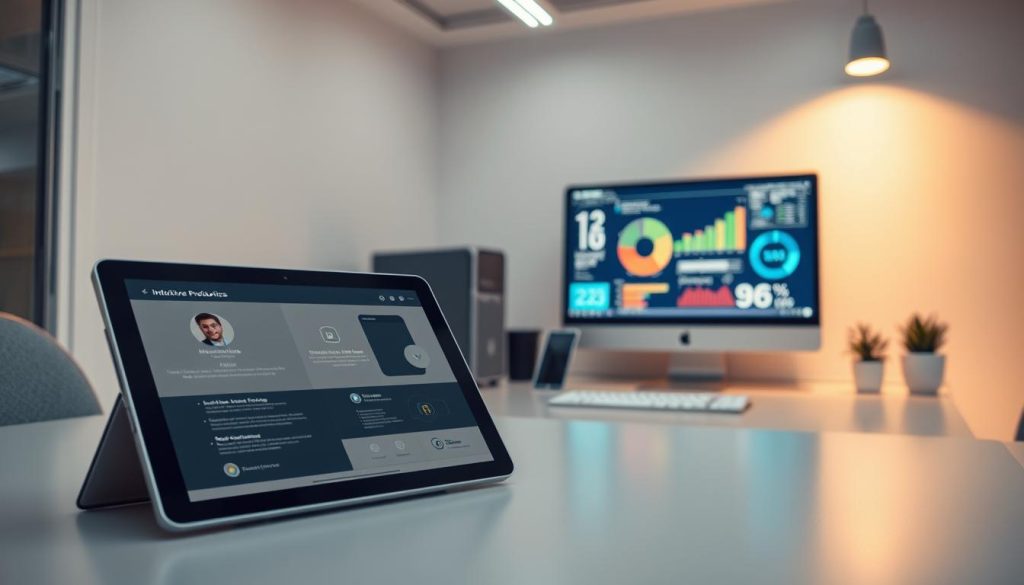In recent years, starting a charity in France has become more popular. This is due to a growing interest in helping others and making a difference. Setting up a non-profit in France can be rewarding, allowing you to positively impact society.
We will look at the key steps, legal needs, and top tips for creating non-profit groups. If you want to tackle social problems or help those in need, this journey is worth it. It requires careful planning and following France’s laws on non-profits.
Understanding Non-Profit Organisations in France
Non-profit organisations are key in France, helping meet societal needs. They focus on charity, education, or community work, unlike profit-making groups. Knowing what non-profits are about is vital for those thinking of starting one. We’ll explore their role in France, highlighting their importance.
Definition and Purpose
Non-profits aim to help the public or community, not to make a profit. Their main goal is to positively impact society, often through services, advocacy, or education. They depend on donations, grants, and volunteers to carry out their work, showing true kindness.
Legal Framework
The Law of 1901 shapes France’s non-profit rules. It ensures these groups are transparent and accountable. France also has rules for foundations and cooperatives, each serving unique community needs. It’s important to know these laws to operate legally and effectively.
Differences from For-Profit Entities
It’s important to understand the differences between non-profits and for-profits. For-profits aim to make money and increase shareholder value. Non-profits, on the other hand, focus on community service and mission sustainability. The debate between non-profit and for-profit highlights their different values and societal impacts.
Benefits of Establishing a Non-Profit
Setting up a non-profit in France has many perks. It offers big financial gains and helps the community a lot. Knowing these benefits helps us make a real difference in society.
Tax Exemptions
One big plus is the tax breaks non-profits get in France. They often don’t have to pay corporate tax or VAT. This lets them use more money for good causes, helping them serve the community better.
Access to Funding
Non-profits can get funding that for-profit groups can’t. This includes government grants and donations from wealthy people. These funds help us do more and reach more people. Grants are often for specific needs, so we can focus on what’s most important.
Community Impact
Non-profits bring people together and help solve big problems. They tackle issues like inequality, pollution, and health problems. Their work builds lasting solutions and encourages people to work together.
Types of Non-Profit Organisations in France
In France, there are many types of non-profits, each with its own purpose and structure. Knowing about these can help us pick the best one for our charity work. The main types are associations, foundations, and cooperatives, each with its own way of working and helping the community.
Associations
Associations are very common in France. They are started by at least two people with a common goal. Associations do many things, like promoting culture, sports, and helping those in need. They are important for bringing people together and working as a team.
Foundations
Foundations in France are mainly for managing money for charity. They often start with donations or bequests. Foundations have to deal with rules and changes, but they are key in helping those who need it most.
Cooperatives
Cooperatives are special because they are run by their members. Everyone gets a say in what happens. This way, cooperatives help each other and work for the good of all. They help local economies grow and bring people closer together.

Step-by-Step Guide to Formation
Setting up a non-profit organisation needs careful planning at every step. We start by choosing a non-profit structure. This choice affects how we are governed and what laws we must follow. France offers different structures, each with its own benefits and rules.
Choosing an Appropriate Structure
Deciding on the right structure is key. We have options like associations, foundations, and cooperatives. Each has its own rules and implications. For example, associations are simpler to manage, but foundations might need stricter rules.
Understanding these differences helps us pick the best structure for our mission and needs. So, choosing a structure is a critical decision that shapes our future.
Drafting the Statutes
After picking a structure, we draft the statutes. These documents outline how we operate, our mission, and member rights. Well-written statutes ensure we follow French laws and are clear in our governance.
In short, drafting bylaws is essential for good management and accountability.
Registering the Organisation
The last step is registering our non-profit in France. We submit documents to the authorities for legal recognition. This step is vital as it makes our efforts official and allows us to get tax breaks and raise more funds.
Essential Documentation Requirements
Setting up a non-profit in France means we need to gather certain documents. These legal papers help us follow French rules. Having these documents ready makes the registration process easier. It lets our organisation work legally and well.
Identification Documents
Founders must show their personal ID to register. This includes:
- Valid passport or national identity card
- Proof of residency, like utility bills
These documents prove who we are and where we live. They make sure we meet the rules for charities.
Statutes and Regulations
Statutes are key for non-profits. They explain our purpose and how we’re run. We must write and submit these statutes to follow the rules for charities. Good statutes make our mission clear and define roles in the organisation.
Proof of Address
We also need to show where our non-profit is. Acceptable documents are:
- Lease agreements
- Utility bills
This proof shows where our organisation is. It proves we’re legal and follow the rules.
Compliance with French Law
It’s vital for non-profit groups to understand French law. They must follow legal rules on governance, financial reports, and being open in their work. This helps avoid fines or legal trouble.
Key Legal Obligations
Non-profits in France have to meet certain legal rules. These rules depend on their type and purpose. Knowing these rules helps us follow the law, including:
- Setting up a board of directors and having regular meetings
- Keeping up with financial records and following financial laws
- Having rules for fair fundraising and spending
Reporting and Transparency Standards
We need to report regularly to be accountable to our supporters and the public. Being open is not just the law; it also makes us more trustworthy. The main reporting tasks for non-profits are:
- Annual financial reports that show our financial health
- Reports on how donations are used
- Making information about our leadership and work public

Securing Funding for Your Non-Profit
Finding enough money is key for our non-profit’s success. We can look into grants, subsidies, and other ways to raise funds. Knowing these options helps us carry out our mission well.
Grants and Subsidies
We can find grants from governments, private groups, and international bodies. It’s important to check if we meet the criteria before applying. Subsidies can also boost our work, giving us the tools we need.
Fundraising Strategies
Good fundraising is essential for our financial health. We should mix old and new ways to raise money. This includes:
- Hosting events to get the community involved
- Starting campaigns that show off our cause
- Using online platforms to reach more people
These methods can help us succeed and keep donors supporting us.
Partnerships with Corporations
Working with companies can bring in money and resources. It’s a chance for us to use their skills and for them to get good publicity. We need to show how it benefits both sides to build strong partnerships.
Financial Management and Budgeting
Effective financial management for charities relies on careful budgeting for non-profits. A good budget forecasts income and expenses well. This boosts financial stability and follows financial planning for charities best practices.
Creating a Budget
Making a budget needs a deep look at finances now and in the future. Key steps include:
- Guessing income from donations and grants.
- Listing fixed and variable costs, like operational and programme expenses.
- Having a plan for regular budget checks and changes, to keep up with financial shifts.
Accounting Practices
Good accounting for non-profits meets reporting requirements for charities and boosts transparency. We suggest using:
- Special accounting software to track money easily.
- Keeping detailed records of money coming in and going out, for budgeting.
- Doing audits often to check finances and keep things honest.
Financial Reporting
Regular financial reporting for non-profits is more than a law; it builds trust. We focus on:
| Report Type | Description | Frequency |
|---|---|---|
| Income Statement | Shows income and expenses over time. | Monthly |
| Balance Sheet | Shows assets, debts, and net assets at one time. | Quarterly |
| Cash Flow Statement | Tells about cash coming in and going out, showing liquidity. | Monthly |
Each report has its own role, giving key info on our financial health and helping our mission.
Incorporating Technology in Non-Profit Operations
Using technology can make non-profits more efficient. It helps with tasks like project management, fundraising, and admin. This lets us focus more on our mission. The digital world has many tools that boost productivity and help us connect with supporters better.
Using Digital Tools for Efficiency
The right digital tools can change how we run our organisations. Platforms help us manage operations, track projects, and boost fundraising. Tools like project management software, donor systems, and online platforms are key. They offer benefits such as:
- Improved team collaboration
- Efficient data management
- In-depth analytics for performance tracking
The Role of Social Media
Social media is vital for non-profits to raise awareness and promote their work. It lets us connect with our audience on platforms like Facebook, Twitter, and Instagram. By sharing stories and successes, we build connections and community support.
Online Marketing Strategies
Creating good online marketing plans is key for charities to attract donors and volunteers. Methods like email campaigns, content marketing, and SEO are important. They help us reach more people, engage them, and boost fundraising.

| Technology Tools | Function | Benefits |
|---|---|---|
| Donor Management Software | Track donations and manage donor relationships | Improves fundraising efficiency and donor engagement |
| Social Media Management Tools | Schedule posts and analyse engagement | Enhances social media presence and reach |
| Email Marketing Platforms | Create and send newsletters or campaigns | Boosts communication and drives donations |
| Project Management Software | Organise tasks and collaborate with teams | Increases productivity and project tracking |
Importance of SEO for Non-Profits
Search engine optimisation (SEO) is key for non-profits wanting to be seen online. By using good SEO, we can reach more people, get more donors, and find volunteers. This part talks about the best ways and tools to boost our online presence and help our causes.
Key SEO Strategies for Visibility
To make charities more visible online, we need to focus on a few important steps:
- Do keyword research to find terms that match our goals.
- Make valuable content that meets our audience’s needs.
- Optimise meta tags, like titles and descriptions, for better rankings.
- Make our website fast to improve user experience.
- Get backlinks from trusted sites to increase our authority.
The Role of WordPress in SEO
WordPress is a great choice for non-profits wanting to boost their SEO. It offers features and plugins made for optimisation. These help with sitemaps, SEO-friendly URLs, and making sure our site works well on mobiles, all key for better non-profit websites.
Tools and Resources for Non-Profit SEO
There are many SEO tools for non-profits to help us improve. Some top resources for making charity websites better include:
- Google Analytics for tracking website visitors and how they use our site.
- SEMrush for finding and checking keywords.
- Yoast SEO plugin for WordPress to make on-page optimisation easier.
- Ahrefs for tracking backlinks and comparing with others.
- BuzzSumo for finding popular content and boosting engagement.
Website Design and Functionality
Creating an effective website is key for non-profits wanting to boost their online presence. By using the best practices for charity websites, we make our sites welcoming and engaging. Focus on easy navigation, clear content, and mobile optimisation is essential. These aspects greatly improve the effectiveness of non-profit web design.
Best Practices for Non-Profit Websites
Following the best practices for charity websites enhances both looks and user interaction. Here are some tips:
- Simplicity: Keep the layout clean to highlight important info.
- Responsive Design: Make sure the site works well on all devices.
- Clear Calls to Action: Use direct prompts to encourage donations or volunteer sign-ups.
Importance of User Experience
User experience is critical for non-profit websites. A good UX keeps visitors engaged. Key factors include:
- Loading Times: Quick loading speeds keep visitors from leaving.
- Accessibility: Make info easy to find for all users.
- Interactive Elements: Add features like donation forms to boost interaction.
WordPress Design and Redesign Services
WordPress services are great for non-profits wanting to build or enhance their websites. They offer flexibility and functionality. By redesigning charity websites, we can improve their performance and look. This attracts more visitors and builds a stronger connection with our cause. Good design boosts user engagement and can increase support and donations.
| Aspect | Best Practice | Impact |
|---|---|---|
| Website Layout | Simple & Clean | Enhances readability |
| Mobile Optimisation | Responsive Design | Increases accessibility |
| User Engagement | Interactive Features | Boosts donations |
| Loading Speed | Fast Performance | Reduces bounce rates |
Ongoing Website Maintenance
Keeping a charity’s online presence up to date is a big job. It needs constant care to keep it working well, relevant, and safe. This lets our organisations connect with supporters better. It’s key to update our sites often to keep them running smoothly and secure.
This part talks about how to keep charity websites fresh, secure, and content-rich. We’ll look at updating sites, boosting online safety, and managing content well.
Regular Updates and Changes
Updating charity websites often is a must. It boosts security and makes the site better for users. Here’s what we should do:
- Keep software and themes current.
- Make sure web content is fresh and interesting.
- Check the site works well and fix any problems.
Doing these things helps keep our sites safe and easy to use.
Security Measures for Non-Profits
Keeping charity sites safe is very important. We handle sensitive donor info, so we must be careful. Here’s how to stay safe:
- Use secure ways to take payments.
- Protect donor data with encryption.
- Back up the site regularly to avoid losing data.
These steps help keep our sites safe. They make donors feel secure and confident in supporting us.
Content Management Strategies
Good content management is key for non-profits. We should:
- Plan content in advance with a calendar.
- Make content that meets our audience’s needs and interests.
- Use tools to see how well our content is doing and change it if needed.
By focusing on content, we keep our audience interested and informed. This helps us share our mission more effectively.

| Practice | Importance |
|---|---|
| Regular Software Updates | Prevents vulnerabilities and improves functionality. |
| Security Protocols | Protects sensitive information and builds trust. |
| Content Management | Keeps the site relevant and engaging to users. |
Banking and Payment Processing
Managing our finances well is key to our non-profit’s success. Choosing the right bank is important. We need to look at fees, services, and support for non-profits. A bank that gets our unique needs can help a lot.
Choosing a Banking Partner
When picking a bank, we look for transparency and reliability. Important things to check include:
- Account fees and minimum balance requirements
- Services tailored for non-profit organisations
- Support for managing grants and donations
- Online banking capabilities for ease of access
- Customer service responsiveness
Setting Up Payment Processing Solutions
Having good payment processing is essential. We need to handle transactions smoothly, like when we accept donations online. Looking at different payment options helps us find the best one for us:
| Payment Method | Pros | Cons |
|---|---|---|
| Online Payment Gateways | Easy integration, secure transactions | Transaction fees may apply |
| Mobile Payment Solutions | Convenient for one-time donations | May lack detailed reports |
| Recurring Donation Platforms | Encourages regular donations | Setup can be complex |
By picking the right partners and solutions, we improve our work. This lets us focus more on our mission and less on day-to-day tasks.
Nominee Services Explained
It’s key to understand the roles of nominee directors for non-profit groups. They protect personal info of founders and handle legal duties. This lets founders concentrate on their mission, not admin tasks.
The Role of Nominee Directors
Nominee directors act as the face of a non-profit, ensuring it follows the law. They take some pressure off the founding team. This setup keeps founders’ personal info safe, helping the organisation run smoothly.
Benefits for Non-Profit Organisations
Using nominee services for non-profits brings many benefits. It makes governance easier and keeps sensitive info safe. The main nominee benefits for charities are:
- It keeps founders’ identities private.
- It helps with legal rules.
- It offers experienced guidance in governance.
- It reduces admin work, letting teams focus on their mission.
Looking into these advantages of nominee services for non-profits, we see they help organisations run better. This leads to a better environment for achieving their charitable goals.
Connecting with Our Services
LerriHost offers a wide range of services for non-profit groups. We help with everything from starting a non-profit to finding banking solutions. Our goal is to give you the support you need so you can focus on your mission.
Overview of LerriHost Offerings
We’re proud to offer LerriHost services for non-profits like web design, hosting, and SEO. These services help your mission reach more people. We understand non-profits have unique needs, and we’re here to help.
Contact Us for Assistance
Ready to see what we can do? Contact LerriHost today. Our team is ready to help with your specific needs. We’re here to guide you, whether you’re just starting or need ongoing support.
Making the First Move
Starting with LerriHost makes setting up your organisation easier. We’ll help you through the early stages. With our support, you’ll be ready to make a real difference in your community.
Conclusion: Taking the First Step
Starting a charity in France requires careful steps. We must understand the legal framework and choose the right structure. Each step is vital for a successful non-profit.
By following our guide, founders can feel more confident. They can navigate the process with clarity. This is key to starting a non-profit.
Our guide covers more than just rules. It shows how non-profits can change lives. By starting a charity, we can make a real difference.
We urge everyone to start a non-profit. This article aims to give you the knowledge and motivation you need. With hard work, we can improve our society.







